Relations between German Chancellor Olaf Scholz and French President Emmanuel Macron have always been strained but they’re now positively hostile. Media on both sides of the Rhine have laid bare the differences that exist between the two men. Der Spiegel calls it a ‘battle of egos’, while Bild recently ran an article headlined ‘The Dangerous Ice Age’.
Analysing the reason for the glacial relationship that exists between Macron and Scholz, Bild highlighted their different natures: Scholz was ‘stiff, often hesitant, but in the end mostly true to his word’, and a leader who had more faith in the Americans and the British than his EU partners. Macron, on the other hand, is an ‘instinctive president who loves the grand gesture more than the small print’. The paper mocked the Frenchman’s vanity, posing topless on a luxury yacht in the Mediterranean, so different from Scholz, whose idea of a good time is hiking in the Bavarian Alps.
Macron is now out of sync with most of the West in seemingly spoiling for a fight with Vladimir Putin
According to Le Figaro, Scholz struggles to decipher Macron, a man he finds ‘voluble and impulsive’. If it’s any consolation for the German, he’s not alone. The majority of the French share his view of their president, a man whose views tend to change from one week to the next.
Macron’s erratic behaviour has now started to alarm even those within his own party. Such is the devotion Macron inspires among his followers that he resembles more the leader of a cult than a country, and for many years he has been above censure from his acolytes. Speaking anonymously, one of Macron’s MPs told Le Figaro: ‘For the first time, in low-level Macron circles, the question of the president’s behaviour is clearly being asked. There was a taboo and it has been lifted, because of his outbursts’.
One of the very few of Macron’s minions to have publicly – and mildly – rebuked their Glorious Leader is Patrick Vignal, an MP in the Hérault. Calling his president ‘brilliant’, he suggested that he might be even more brilliant if he learned the art of delegation. ‘He can’t do everything: be president, minister, member of parliament, mayor and departmental council chairman all at the same time,’ said Vignal. ‘Let’s just say he’s overly generous in his desire to solve problems!’
Macron is selective in which ‘problems’ he wants to solve. Crime, mass immigration and drug trafficking don’t appear to concern him that much, despite the horror stories that fill the pages of the newspapers each week. The latest concerns a drunk Palestine refugee who took exception on a train to a crying baby and, allegedly, stabbed the mother and a friend.
As for the rampant drug trafficking, such is the power wielded by the gangs in Marseille that the city officials warned the Senate this week that ‘the rule of law and republican stability are at stake’. Violence and corruption are spreading and magistrates have renamed Marseilles ‘Narco-ville’, warning that they are in danger of losing the war to the gangs who already control parts of the city.
Macron has been promising Marseille that things will get better since a visit to the city in 2021. He returned last June to see how his ‘regeneration plan’ was coming on. The dozens of dead – 49 were killed in tit-for-tat drug killings last year – indicated things haven’t improved.
If Macron was serious about restoring Republican order to Marseille, he would send in the army – as the majority of French people want – to put an end to the drug gangs once and for all. He dare not, however, because it would signal that his government has indeed lost control of part of the country.
So instead Macron moots the idea of sending his troops to Ukraine, along with those of other Nato countries. His suggestion was swiftly shut down by most of his allies, including Scholz who gave an emphatic ‘Nein’. Irritated by the lack of support, Macron this week urged Nato members ‘not to be cowards’. Germany’s defence minister, Boris Pistorius, retorted that such rhetoric ‘doesn’t really help solve problems’.
It is not just the Germans who are becoming alarmed by Macron’s belligerence towards Russia. On Thursday he met the leaders of France’s main political parties to brief them on the situation and to tell them his support for Ukraine ‘has no limits’.
When they emerged from the Elysee Palace, they expressed their unease with the president’s war-mongering. Marine Tondelier, head of the Greens, suggested Macron was allowing his ‘virility’ to get the better of his common sense, and she characterised his stance as ‘amateur’. Eric Ciotti, leader of the centre-right Republicans, denounced Macron’s attitude as ‘inopportune, inappropriate, even irresponsible’, which has ‘isolated our country’.
Nor do the people share Macron’s appetite for confrontation with Russia. A poll published this week found that the top five concerns of the French were: inflation (44 per cent), purchasing power (43 per cent), law and order (34 per cent), health and social security (31 per cent) and immigration (29 per cent). The war in Ukraine was ninth, a pre-occupation for just 13 per cent of the people.
Polls like this don’t interest Macron; domestic issues are ‘small print’ affairs in his view. Anyway, he’s never been in step with the people over whom he presides, which is why his time in office has been marked by several social uprisings.
What is more worrying is that Macron is now out of sync with most of the West in seemingly spoiling for a fight with Vladimir Putin. That would be the ultimate ‘grand gesture’, and one that would not end well for anyone.
Got something to add? Join the discussion and comment below.
Get 10 issues for just $10
Subscribe to The Spectator Australia today for the next 10 magazine issues, plus full online access, for just $10.


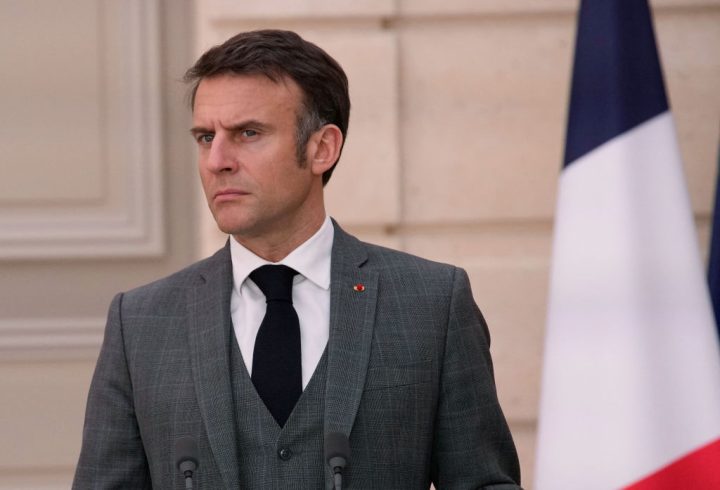
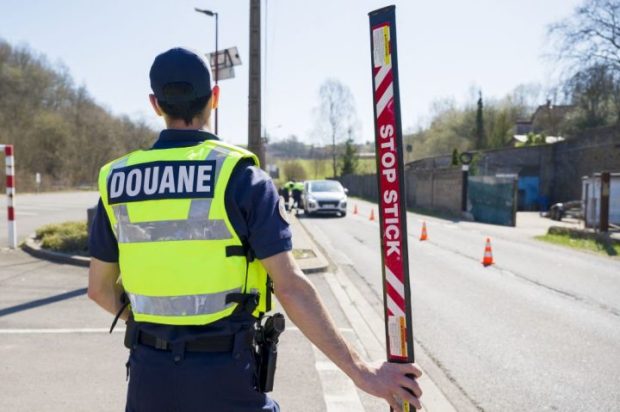
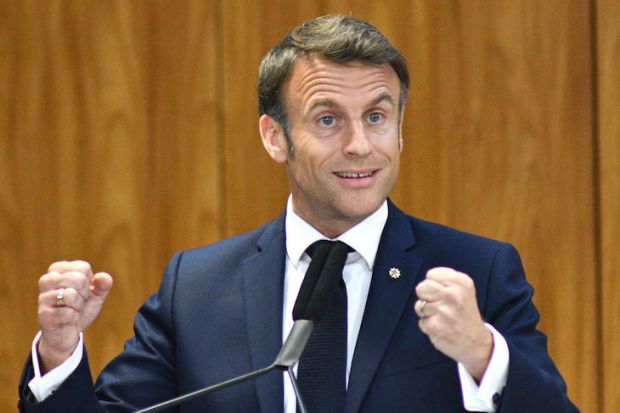

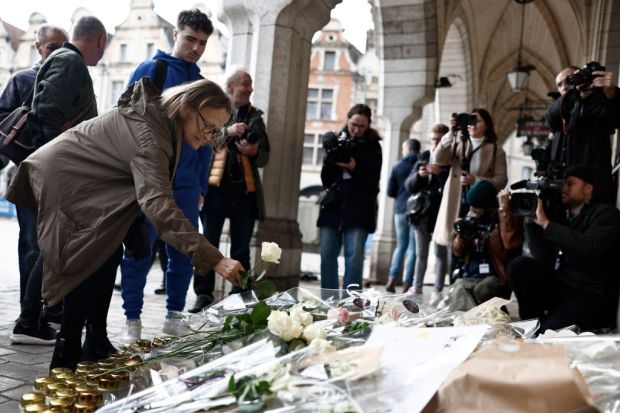
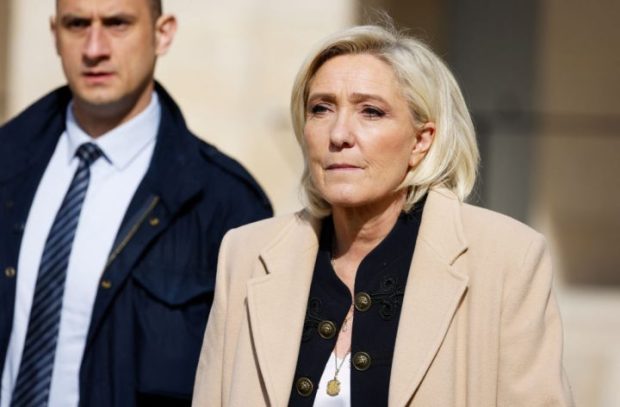
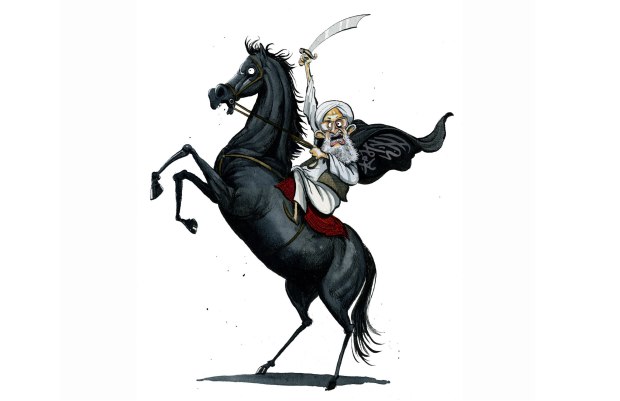












Comments
Don't miss out
Join the conversation with other Spectator Australia readers. Subscribe to leave a comment.
SUBSCRIBEAlready a subscriber? Log in